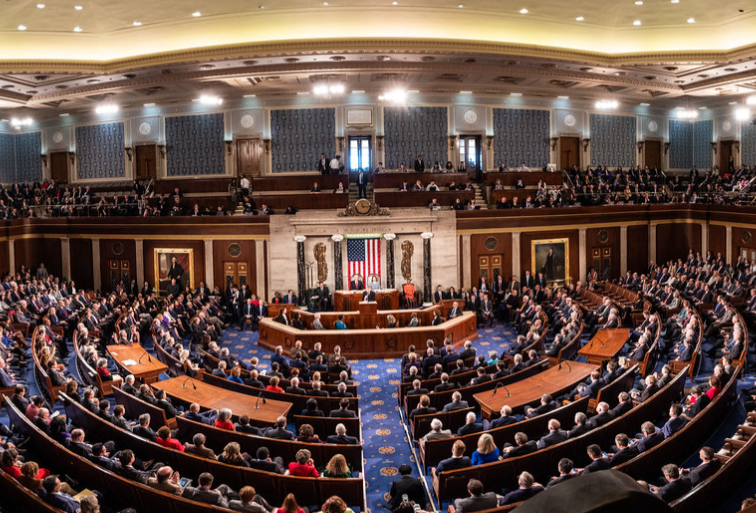The annual discussions regarding a continuing resolution to fund our federal government highlight a persistent issue in American politics.
This cyclic phenomenon serves as a stark reminder of a systemic problem plaguing the nation's governance. It often culminates in a frantic rush to pass an Omnibus Spending Bill, typically prompted by Congress's failure to promptly allocate funds and address the pressing priorities of the Americans who entrusted them with their votes. This cycle of budgetary negotiation leaves citizens understandably frustrated and skeptical of their elected representatives' ability to govern effectively.
It is paramount that the 435 representatives in "The People's House" dedicate themselves to addressing the many challenges facing the nation. These challenges are rooted in the principles of the U.S. Constitution, and it is the solemn duty of these elected representatives to address them on behalf of "We the People."
A substantial portion of federal spending currently lacks explicit authorization from the U.S. Constitution, a concerning trend raising questions about fiscal responsibility and government overreach. It is imperative that the government exercises restraint when allocating public funds, ensuring that essential spending is prioritized, while superfluous and potentially harmful expenditures are eliminated.
A significant reduction in federal spending, by a minimum of 50% or more, is a necessary step toward fiscal responsibility. If our representatives require guidance in discerning these priorities, many responsible citizens are eager to provide insight and support. I personally believe that members of Congress should not receive their salaries when government shutdowns occur.
The House should adhere to its established rules, which call for the passage of 12 separate spending bills, thereby forcing each representative, whether Democrat, Independent, or Republican, to take a definitive stance on every item within these bills. This process ensures transparency and accountability, allowing constituents to understand where their elected officials stand on key issues.
Furthermore, the speaker of the House should not possess unchecked authority to compromise these priorities to appease the president or senators. And if confidence in the speaker erodes, as recent events indicate, the House should consider a replacement. Florida Rep. Matt Gaetz’s commitment to principled governance suggests him as one current potential candidate for this leadership role.
In a separate but equally significant situation, Congress has access to substantial evidence that may warrant the impeachment of the current president. This evidence pertains to his alleged actions concerning China, Ukraine, and his purported role as the leader of the so-called Biden Crime Family.
The delay in addressing these concerns while the mainstream media attempts to shift blame onto his son, who may face separate charges, is a cause for concern. Congress should not wait for the actions of a so-called "special prosecutor" appointed by Attorney General Merrick Garland, especially as he may be inclined to arrange plea deals to shield the Bidens from further prosecution, something we’ve seen previously.
Each House member should be held accountable through their votes on whether to impeach or not. The president must face a trial for the alleged crimes, and the Senate tasked with rendering a verdict.
Lastly, it is crucial to address the political narrative surrounding the events of Jan. 6, 2021. Mischaracterizing these protests as an insurrection or as an attempt by President Trump to retain power is detrimental to the national discourse. It is imperative that all political prisoners detained in connection with these events be released, and any charges against them dropped. Furthermore, protestors who were coerced into pleading guilty to crimes they did not commit must have their convictions overturned and be released.
Members of the House of Representatives bear a significant responsibility to rectify the actions of the previous Congress, which appeared to be tainted by allegations of corruption and wrongdoings. It is their duty to restore the public's faith in their elected officials and uphold the principles of transparency, accountability, and responsible governance that are at the core of our Constitutional Republic.
To contact KCarl or request a speaking engagement, go to www.kcarlinc.com The views and opinions expressed here are those of the author and do not necessarily reflect the policy or position of 1819 News. To comment, please send an email with your name and contact information to Commentary@1819News.com.
Don't miss out! Subscribe to our newsletter and get our top stories every weekday morning.










